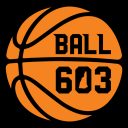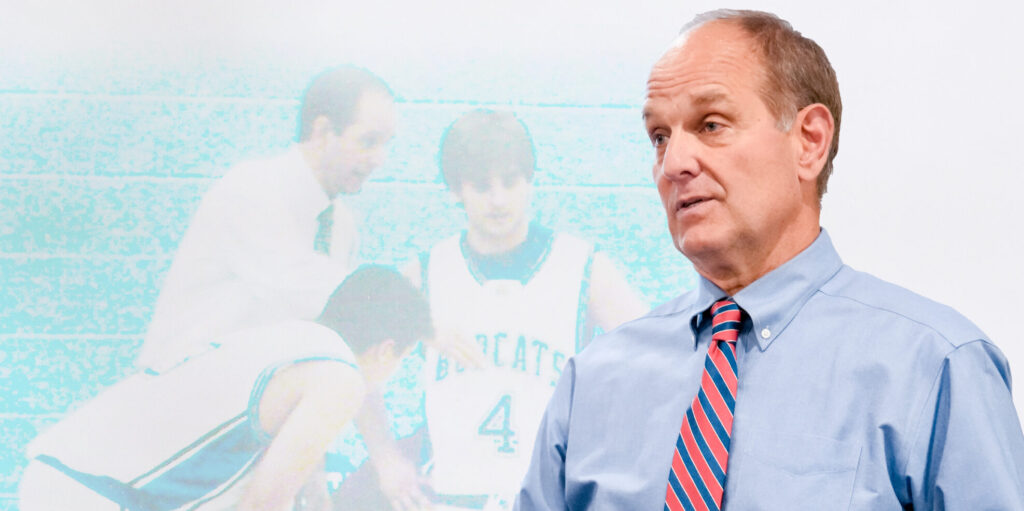By: Mike Whaley
(This is the sixth in a series on the 2022 and 2024 inductees into the New Hampshire Basketball Coaches Organization’s Hall of Fame. The stories will run periodically during the winter season.)
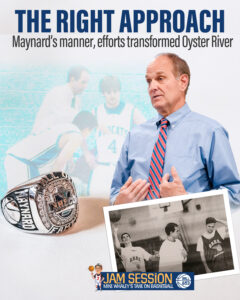 Don Maynard was all about coaching the right way. Winning was certainly part of it, but Maynard was really concerned about doing things the right way. If you won, well, then all the better. Jeremy Friel, one of three Friels to play for Don, summed up his former coach like this: “Coach Maynard is the epitome of what a high school basketball coach should be: Organized, prepared, caring and fair. It was never about him and always about the team. The amount of time he put into the youth programs on Saturday mornings or with his basketball camps in the summer, from scouting to (logging stats from) games from film by himself, from organizing coaches clinics to summer league, and doing this all with teaching and a family is impressive. Being a high school coach myself now, I have an even greater appreciation for all of his efforts and time spent trying to make Oyster River basketball as competitive as it could be year in and year out. We were lucky to have him as our coach and at Oyster River.”
Don Maynard was all about coaching the right way. Winning was certainly part of it, but Maynard was really concerned about doing things the right way. If you won, well, then all the better. Jeremy Friel, one of three Friels to play for Don, summed up his former coach like this: “Coach Maynard is the epitome of what a high school basketball coach should be: Organized, prepared, caring and fair. It was never about him and always about the team. The amount of time he put into the youth programs on Saturday mornings or with his basketball camps in the summer, from scouting to (logging stats from) games from film by himself, from organizing coaches clinics to summer league, and doing this all with teaching and a family is impressive. Being a high school coach myself now, I have an even greater appreciation for all of his efforts and time spent trying to make Oyster River basketball as competitive as it could be year in and year out. We were lucky to have him as our coach and at Oyster River.”
Don coached basketball at Oyster River for 26 years – 21 as a head coach (boys, 20 years). His coaching record was 310-168, which included three Class I boys championships in 1992, 1995 and 1996. He also taught physical education and served as the school’s athletic director. Last November he was one of seven inductees into the NHBCO Hall of Fame in Concord.
“We always knew Coach Maynard was passionate about basketball and really cared about the team, the kids and the community,” said Keith Friel, the school’s all-time scoring leader (2,148 points) and key player on back-to-back championship teams in 1995 and 1996. “He always brought energy and was very positive, especially in tough situations.”
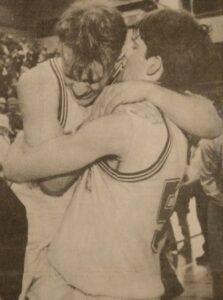
Don grew up in Chelsea, Vermont, and attended college at Norwich University. He played two years of basketball for old-school coach Ed Hockenbury. Don recalls not really thinking about grad school until he received an inter-campus memo from Hockenbury to see him. It changed Don’s life.
He certainly wanted to coach. After he got done playing basketball, Don spent two years coaching the JV team at his high school in Chelsea. Hockenbury’s proposition was enticing. If Don wanted to be a graduate assistant, all he had to do was pay for room and board, the cost to pursue his master’s degree would be covered if he was a grad assistant. “The best year of college I had was my graduate year,” he said.
Don lived off campus with another grad assistant, Keith Boucher, who was also pursuing his master’s. Boucher is now the long-time women’s coach at Keene State College.
This is how Don got to Oyster River. He was invited to Boucher’s wedding, and there he met his future wife, Cheryl. She was attending the University of New Hampshire and living in Lee. Don moved to the area to be with her and started looking for work. He got a job teaching PE in Somersworth, which he did for one year in 1984-85. Cheryl was working as a certified occupational therapist at the Rollinsford Elementary School where she met Debbie Nichols who worked there. One day before basketball season, the two women were chatting. It came up that Don had played and coached basketball a little bit. Debbie mentions that her husband, Dave Nichols, is the head coach at Oyster River and he needs some help. Dave called Don up, and he was Dave’s assistant coach for the 1984-85 season. His foot was in the door.
The following year he taught PE in Barrington/Strafford, and was hired by Oyster River to coach four teams – freshman and JV soccer, JV basketball and varsity softball.
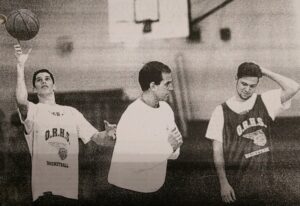
The following year he got hired to teach PE at Oyster River and kept the four coaching positions. He gave up the two soccer positions the following year, stayed with JV basketball and was hired as varsity baseball coach in place of softball. He became the head basketball coach in 1988. He gave up the baseball post to focus on one sport.
When Don took over the boys’ program in 1988, the Bobcats were coming off a Class I state championship under Nichols. Parental pressure led to his removal, although Nichols fought it and was eventually reinstated. At that point he resigned on his own terms.
Don was excited to be heading his own program. “I had an idea of what I wanted to do for offseason stuff,” he said. He got to the point where he had kids doing basketball pretty much year round except for a six-week window in September and October.
Don started a local AAU program called the Renegades, which involved grades 3-4 right up to high school. That carried through from the spring into the summer when there was summer basketball. Oyster River had a JV and varsity team that played in the summer league and also went to a team camp in Providence, Rhode Island. Between the league and the camp, the teams played 30 or so games. That’s’ not even mentioning Oyster River’s own camp held at the high school and run by Don. By the time all that was ending, school was starting up.
“That’s how the coaching experience was for years and years,” Don said. “I loved it. I’d see kids in first and second grade and then they’re coming up through the ranks and I’m coaching them in high school. You know what I miss? Seeing them get into it. Seeing the little kids come to the high school games. Having them in the locker room; little kids sitting on the lockers for the pregame stuff. Then they’d go out and form a line for the varsity kids to run through on their way onto the court. That was pretty cool.”
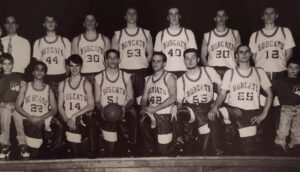
Don feels when he started the AAU program it gave basketball legitimacy in Durham. It made parents realize basketball is a pretty big deal too in a town where soccer had long been king. “For some reason, in their heads, that made it more valued, I guess,” Don said of the parents’ way of thinking. “It was more of a real sport, if that makes sense.”
The program really started to roll. “Seeing all those kids playing AAU. We had kids all over town wearing Oyster basketball and camp stuff. We were giving away Oyster River basketballs at camp. Whatever it took to get them hooked. We had it going pretty good, or at least I thought so.”
Don’s first state title in 1992 kind of came out of nowhere due mainly to the late enrollment through an exchange program of a 6-foot-4 Irish kid named Allan Conlan. “What a wonderful kid,” Don said. “Hard worker. Great fit. No ego at all. None of the kids on that team had egos.”
As Don recalled the team, Bryan Rutland was the shooter, Scott Poteet the point guard, and Russ DeForrest the other guard. “It was by committee after that,” Don said. “They just played hard. But they really defended.”
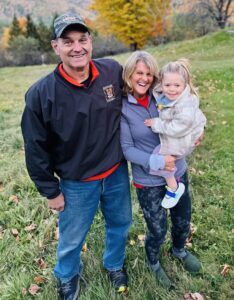
Oyster River came on Conlan’s radar during the summer of 1991 when he played for an Irish team at an international basketball festival in Portsmouth. When Conlan came over, the Irish team stayed with families in the Durham area. Evidently, said Don, he had a good experience.
The festival was in early July. Come mid August and Don started hearing that Conlan was coming to America and that he wanted to go to Oyster River. Long story short, Conlan went through a recognized exchange program that had him lined up to attend the high school with a place to live by the first day of school. “It ended up being a great situation,” Don said. “He stayed with a family called the Belands. They treated him like a son. It could not have worked out better for everyone. He loved them. He loved Oyster River. He loved the team. He was a great kid.” Conlan loved New Hampshire so much that he stayed and went to college at Plymouth State, having a Hall of Fame career for the Panthers.
It was, however, no love fest with Oyster River’s Class I opponents who had to try to match up with the formidable Conlan. Unsurprisingly, the Bobcats were able to make a run, finding themselves in the championship at UNH on the final day of the Class I season against ConVal.
“That game was crazy,” Don remembered. “We got behind 18-4. ‘Holy crap, what are we going to do? Are we going to embarrass ourselves here?’ From that point, we gave up 33 points. We played defense.” OR won the championship in overtime, 58-51.
Some detractors felt it was unfair that the Bobcats had won the title with an exceptional exchange player. But, as Don noted, ConVal had a pretty good exchange force of its own in James Reilly, a 6-7 inside presence who Conlan knew from Ireland.
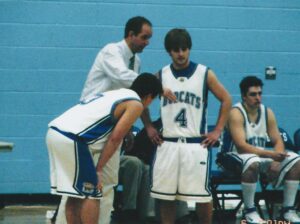
One memorable story Don has involves an angry parent who showed up at the shootaround before the championship at the Oyster River gym. He was complaining about, shocking as it may seem, his son’s playing time. He was firmly told to leave.
“What’s crazy, we’re getting our ass kicked (in the first half),” Don recalled. “The parent’s kid was an OK guard. I put him in. The first two times he touched the ball he nailed 3s and that really turned the game around in the second quarter. Isn’t that something? Part of me wanted to leave the kid on the bench. I gave him a chance. He goes out there and hits two huge shots.”
Brad Taylor introduced Don at the NHBCO Hall of Fame event. He thought the 1992 championship game was one of his coach’s finest moments. Taylor was there watching the game with a bunch of fellow eighth-graders. “You never noticed coach Maynard. He was never the show,” said Taylor. “But how he calmed his team down (after they fell behind big early). … We were in total awe of that ConVal team, but then they (Oyster River) came back and won in overtime. We sat there and said ‘that’s a guy we’re ready to play for.” It was incredible coaching. They were so undermanned compared to that (ConVal) team.”
After the 1992 championship, Don’s next group to come along is the best in program history – led by Keith and Greg Friel, the sons of former University of New Hampshire men’s basketball coach, Gerry Friel, who guided the Wildcats from 1969 to 1989. Given Oyster River’s long history of meddlesome parents, you might think this was going to be a problem. The opposite, in fact, was true. “Gerry might have been the best parent I ever had the opportunity to interact with,” Don said. “He was so supportive. He wouldn’t hesitate to say, ‘If my kid steps out of line, kick his ass.’”
Don could sit down and talk with Gerry about anything. “He wanted his kids held accountable,” Don recalled. “He wanted them playing both ends of the court. He was interested in body language and how they conducted themselves.”
Don said Gerry was never critical of him unless he felt Don was letting his kids get away with something. “If I wasn’t holding them to a high standard, he would be disappointed,” Don said. “But that didn’t happen often. He was great.”
In fact, for three or four summers, Gerry invited Don along to a coaches’ summit in Durham at the home of Knobby Walsh, a respected retired high school coach from Providence, Rhode Island. “He was extremely knowledgeable and extremely old school,” said Don of Knobby. “He would come to a game when Greg and Keith were playing, and he would take notes. He’d hand me four pages the next day of stuff he saw or things we should be doing. Sometimes it was a little intimidating.”
Don recalls the coaches’ summit at Knobby’s place. Gerry was there, of course, as was Dartmouth College coach Dave Faucher and Fairfield coach Paul Cormier, and several other coaches. “There were at least a half dozen sharing thoughts and ideas,” Don said. “I’m sitting there with my jaw on the floor.” As if it wasn’t a wonderful experience already for Don, in addition Knobby was a wonderful gourmet chef. He would periodically bring in mouth-watering dishes while talk of basketball carried on between bites. “That left an impression,” Don said.
When Keith Friel was a freshman in 1992-93, the team struggled but you could see that something good was coming. The following year, the team started slow, but ended on a hot streak and looked to be a dangerous team in the playoffs. After a first-round win, the Bobcats were doing a walkthrough the day before their quarterfinal game against No. 1 Lebanon at UNH. Keith seriously rolled his ankle. He tried to play in the game, but he couldn’t. Still, as Don recalled, they gave Lebanon a game, losing by a handful of points. “If he’d been healthy, I think we would have won that game and might be talking about three state championships in a row,” Don said.
Keith was the most celebrated of the five Friels, all of whom scored over 1,000 points at Oyster River and later played NCAA Division I college basketball: Keith (Notre Dame/Virginia), Greg (Dartmouth), Jennifer (UNH), Jeremy (UNH) and Jill (UNH).
The 1994-95 season was a very good one with a mostly underclassmen team. It was actually after January when the lone senior was declared academically ineligible. The Bobcats were very good. You had the two Friels, who everyone knew about. But the supporting cast and even the bench were top notch. Scrappy guard Brad Taylor, 6-5 Dan Kowal and sharpshooting Keith Courtemanche rounded out an outstanding starting five. The first few guys off the bench would have started on any other team, according to Don. “Sometimes they would come into the game and there was very little drop off,” he said. “That’s something I always took some pride in. On my team, you’d have a kid come off the bench, the skill level might be different, but they knew what they were doing. So it was obvious every kid was coached, not just the so-called starters. It didn’t matter if you were the ninth, 10th, 11th player. Whatever. You were going to get on the court and you were going to play hard and know what to do.”
Three key reserves during that two-year title stretch were Doug Pitman, Gordon Matthews and Tom Getz.
The biggest challenge with that team, especially in 1995-96, was playing time. Because the Bobcats were winning by large margins, the starters were lucky to play half the game. “It was tough because obviously the kids want to play,” Don said. “They’d get a big lead and the next thing you know I’ve got kids sitting on the bench. I want to get them in the game. Sometimes that was a little tricky. I want them to play too.”
Don had the respect of the players. “If there was a problem, we could always talk to him – ‘hey listen, we need to pick up the pace or whatever.’ He was open,” said Greg Friel. “He was a physical education teacher. He had a grip on the school. He knew what was going on. He knew what kids were doing what.”
Greg recalls before the 1995 championship game, all the players got Mohawk haircuts. Greg got the idea from Conlan when he shaved an Irish Shamrock on the back of his head before the 1992 championship game. Don even joined the team by shaving his head. “He was still young enough and hip enough. ‘All right I can still do this. Let’s go.’”
Taylor remembers the Mohawk moment. In some ways it perfectly captured the loose and free-spirited nature of a team that Tayor said Don allowed “to be idiots 10 years before the Red Sox did. He let us be who we are.”
Taylor smiled, adding, “We thought on Gerry Friel’s homecourt we could embarrass our parents, our girlfriends, and everybody else as quickly as we could, and relax everybody. Lebanon didn’t know what was going on. We all looked like a band of idiots. We were misfits. But we were relaxed, chilled, and ready to go as massive underdogs in my opinion.”
The OR “misfits” did in fact beat Lebanon for the 1995 title, 55-52. As they got ready to defend its title, Don made sure that the Bobcats played the best competition. They played in the Queen City Invitational in Manchester over the Christmas break. They met Manchester Central in that championship before a huge crowd. “We absolutely got our asses kicked,” Don said. “It was a good experience. The kids realized they had to play defense to beat anyone. Central played defense. That was humbling.. But it had the kids’ attention the rest of the year.”
The season culminated with a repeat at UNH over Bishop Brady, 58-49 – avenging their only loss of the season to Brady in Concord. That’s another game Don remembers, not so much for the loss but for the fact that Brad Taylor nearly killed himself crashing into the stage. “He hit the stage head-on diving for a loose ball,” Don said. “I thought for certain he had broken his neck.”
Keith Friel said that Don “was always open to hearing and asking what we saw out there and what we thought and also being firm, too, for the most part. Like knowing when Greg needed to be kicked out of practice.”
The Friel boys were almost always matched up against each other in practice, which often became a volatile situation because they were so competitive. “He was constantly hacking me during every drill,” Keith recalled. “I’m like ‘Dude …’ I’v got him (Greg) chirping at me as we’re going head to head. I’m sure it was a lot to manage , but we were all very passionate about basketball.” Of course, again, Don had the complete backing of the Friel parents, so any reasonable punishment was supported without question.
The Brady squad was no slouch with a core of excellent players, many of whom went on to play in college, including the Collins brothers and Marshall Crane. As Don recalled, the following season the Bobcats, with only Greg Friel back from the 1995-96 core, nearly pulled off a major upset over the heavily-favored Giants in the quarters at UNH. “It would have been the biggest upset of my coaching career,” Don said. “Instead, it’s one of my hardest losses.”
In the waning seconds of a tie game, Greg was fouled and stepped to the line to take two foul shots with two teammates back to defend. He hit the second one to give OR a one-point lead with 1.4 seconds to play. Brady’s Billy Collins quickly inbounded the ball after the make, throwing a baseball pass the length of the floor to Crane who somehow caught the ball under the basket with two defenders on him and was fouled trying to score. He made both foul shots for the win. “That was tough,” Don said. “To this day, I second guess that.”
It just went to show that you never know. Don mentioned a game just before the 1992 playoffs in which the Bobcats were throttled by Pembroke by almost 40 points. The Concord Monitor called it “The St. Valentine’s Day Massacre.” Two weeks later, OR beat the Spartans by one point in the semifinals. “I tell kids, you never know,” he said. “That’s why you play the game.”
Don continued to coach through 2008. He coached another Friel (Jeremy) and later his sons, Steven and Trevor, and even, as an assistant, coaching his daughter, Riley. He enjoyed that experience. “”The only rule I had was, I would not talk basketball at home or in the car after practice unless they brought it up,” he said. “In the gym, I was ‘Coach.’ Any other time I was their dad.”
Trevor Maynard loved playing for his dad. He still gets the odd comment about how playing for his dad must have been tough. He pushes right back. “No, I absolutely loved it,” Trevor said. “Looking back, I wouldn’t have wanted it any other way.”
Not that Trevor had it easy. He certainly felt at the time that because he was the coach’s kid he had “to justify my playing time and be good enough so that when he put me in and I was getting my minutes, there was no doubt in my mind or anybody else’s mind that I was playing because I deserved it and not because I was the coach’s kid.”
That’s why Trevor worked so hard. “I didn’t want anyone to go to him and say ‘why the hell are you playing your kid when my kid should be getting playing time over him?’ I always tried to take that upon myself. I need to be the best one out on the court, so that when I do play every minute or I play a majority of the minutes, no one’s going to question that. Parents could be really tough, and he always handled those conversations really well.”
Don acknowledged that while he enjoyed the experience of coaching his boys, it was also tougher for them. “They were the first ones to come out of the game. Maybe they were the ones that had to more than prove themselves,” he said. “That part was a little bit tough.”
But the positives by far outweigh the negatives. Don’s kids were around the game at a very young age and that meant being around the Oyster River program. “They were in the gym during basketball camp and they were in the gym during basketball practice,” he said. “I think every one of my kids ended up being in a backpack at practice at some point. That’s the way it was. They grew up around it.”
Don’s final year was 2007-08 with the boys team, although he would coach the girls as the head coach later on. It was a great year until the end. The Bobcats put together the program’s only undefeated regular season, but were upset at UNH by Pembroke in the quarterfinals. The Spartans had a quality player who missed a chunk of the season, but was ready for the playoffs to make them a much tougher nut to crack than their lower seeding suggested. Don recalls in the final 10 seconds down one, his point guard was knocked down at the top of the key by several Pembroke players. “Game over. The referees left the court. It was just over,” he said. At the time, the tournament was running three referees, which was not the case during the season. Don said the referees looked at each other like it was someone else’s call. “No call is ever made. The horn goes off. Game over. ‘Are you kidding me?’” he said. “It ended up being my last game in Trevor’s senior year.”
Looking back, Don recalls his practices which were always in motion with not much standing around. “We’d frequently start out with some ball control drills,” he said. “For 90 minutes I wanted my team moving. We didn’t do a lot of actual running or conditioning. I figured we had them going for 90 minutes. That was the conditioning.”
He also didn’t announce starters. “We’re a team,” Don said. “No one is going to have the title of starter. People would know. They’re part of the team. You’re not a bench warmer. You’re not a starter. You all have your own roles. We’re a team.”
In practice, Don would mix the players up. But at some point, he would make sure those who would be starting were playing together. “I just wanted every kid to feel like he had a role,” Don said.
The Oyster River experience was an excellent one for Don Maynard. “”I’m so appreciative of the quality of kids I had to work with,” he said. “I had so many kids who worked so hard. The older I get, the more I appreciate that.” And, of course, that appreciation works both ways, certainly more than the overly modest coach would ever care to admit. But it’s absolutely true.
Mike Whaley can be reached at whaleym25@gmail.com
